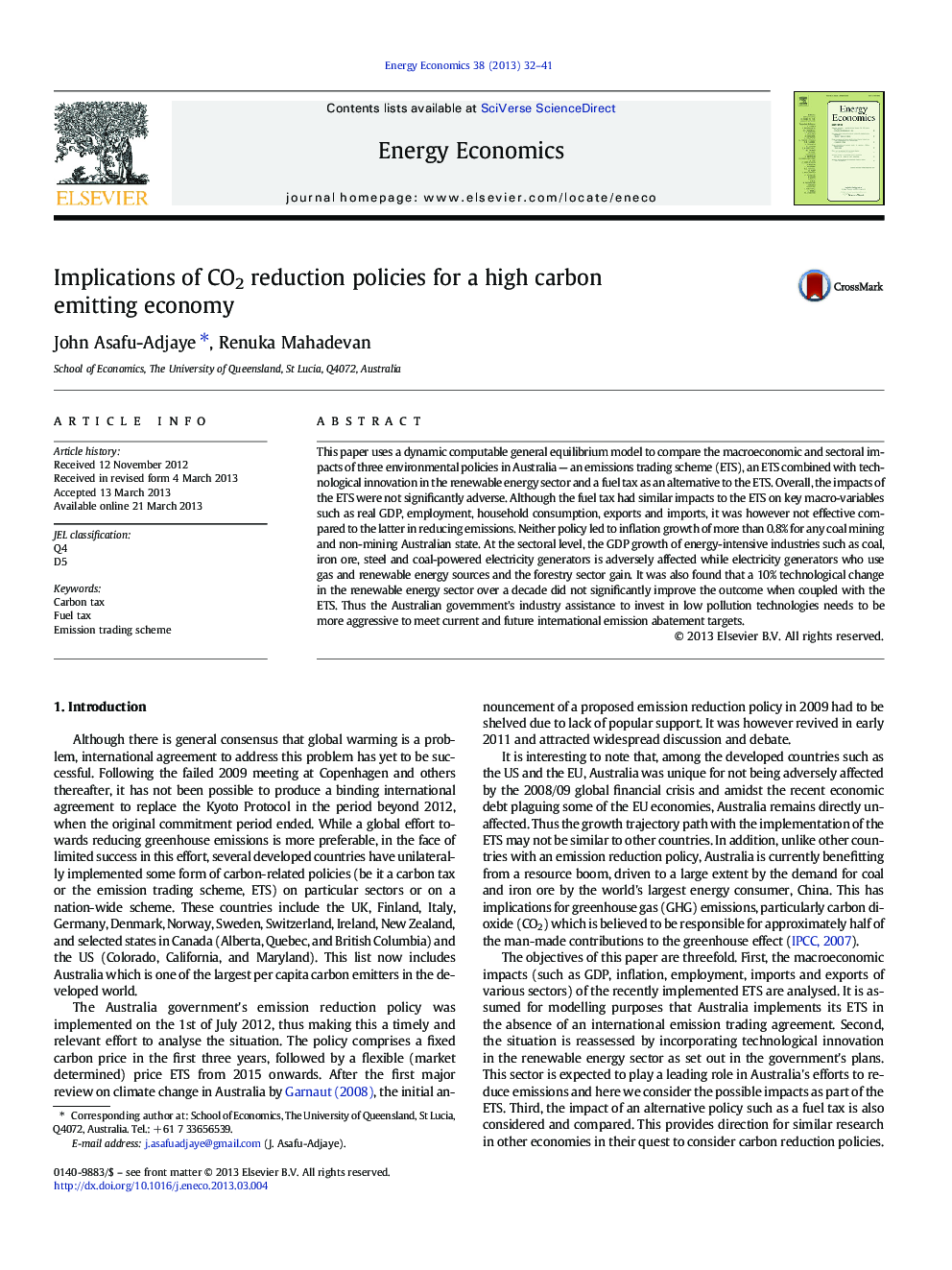| کد مقاله | کد نشریه | سال انتشار | مقاله انگلیسی | نسخه تمام متن |
|---|---|---|---|---|
| 5064924 | 1476725 | 2013 | 10 صفحه PDF | دانلود رایگان |

- We model three carbon mitigation policies for Australia.
- These are emission trading scheme, an ETS with technical change and a fuel tax.
- We found the ETS to be more efficient at reducing CO2 emissions than the fuel tax.
- Technical change in renewable energy did not significantly reduce emissions.
- For more significant outcomes, more incentives for technical change are required.
This paper uses a dynamic computable general equilibrium model to compare the macroeconomic and sectoral impacts of three environmental policies in Australia - an emissions trading scheme (ETS), an ETS combined with technological innovation in the renewable energy sector and a fuel tax as an alternative to the ETS. Overall, the impacts of the ETS were not significantly adverse. Although the fuel tax had similar impacts to the ETS on key macro-variables such as real GDP, employment, household consumption, exports and imports, it was however not effective compared to the latter in reducing emissions. Neither policy led to inflation growth of more than 0.8% for any coal mining and non-mining Australian state. At the sectoral level, the GDP growth of energy-intensive industries such as coal, iron ore, steel and coal-powered electricity generators is adversely affected while electricity generators who use gas and renewable energy sources and the forestry sector gain. It was also found that a 10% technological change in the renewable energy sector over a decade did not significantly improve the outcome when coupled with the ETS. Thus the Australian government's industry assistance to invest in low pollution technologies needs to be more aggressive to meet current and future international emission abatement targets.
Journal: Energy Economics - Volume 38, July 2013, Pages 32-41